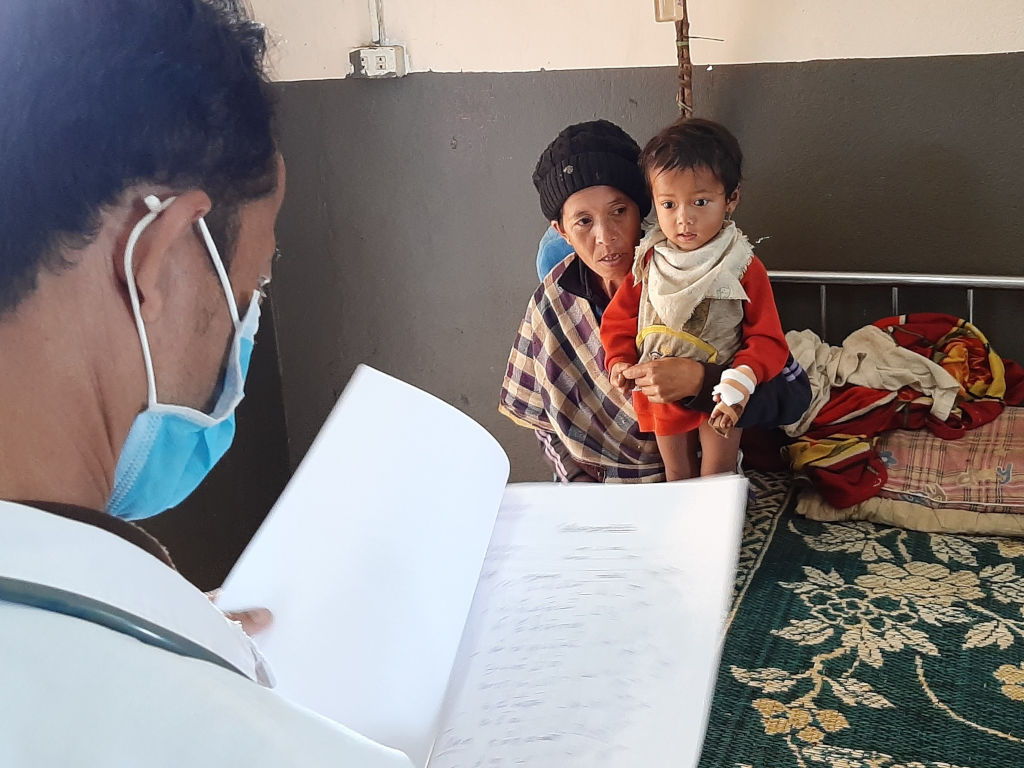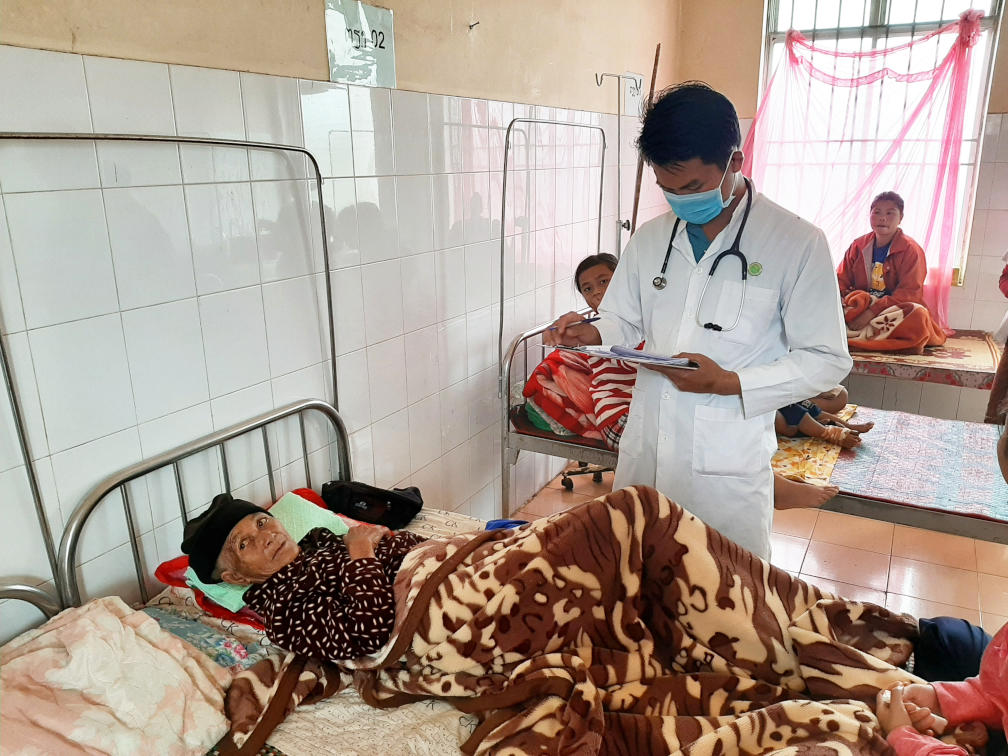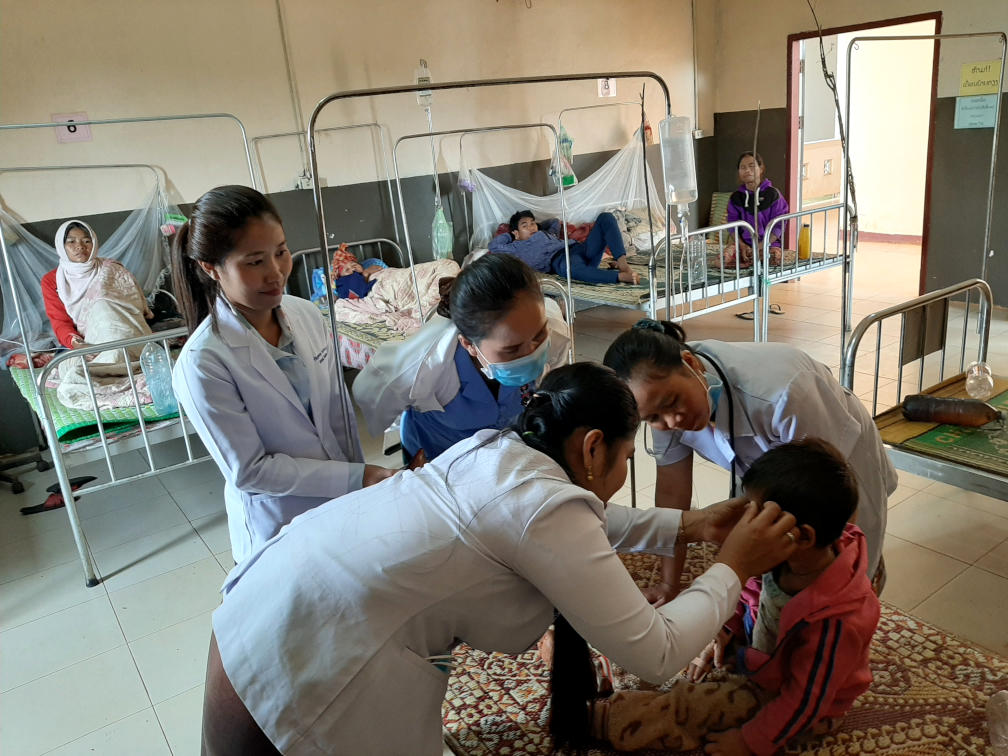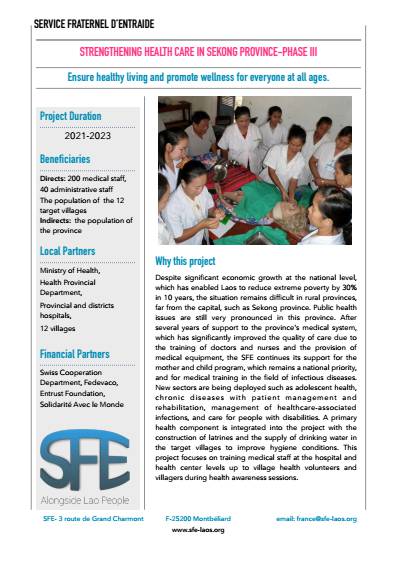Sekong – Hospital Project
Strengthening Health Care in Sekong Province: ensuring healthy living and promoting well-being for all people at all ages

This project extends the SFE’s action in strengthening health services in Sekong province, so that quality care is offered to the entire population. The first support, which began 9 years ago and targeted assistance in the diagnosis and prevention of tuberculosis, has been extended, at the request of local health officials, to hospital support through the implementation of a medical training program for nurses, doctors and midwives.
Background
The province of Sekong is a poor rural province, 31% of the population lives below the poverty line. It is composed of about fifteen ethnic minorities living in villages mostly scattered in the mountains where access is often limited especially during the rainy season. In recent years, the health problems have become highly contrasted between a poor rural population still heavily affected by communicable diseases, a high child mortality rate, a still high rate of chronic malnutrition and an urban population less affected by communicable diseases but whose share of chronic diseases is increasing.

It is clear that the local health system is ill-equipped to meet these new challenges. Significant progress has been observed in the quality of care at the Sekong provincial hospital, some district hospitals and health centers. It is because of better trained doctors, nurses and midwives, adequate supply of medical equipment and optimized management of medical services that quality has been optimized. However, certain sectors still need to be developed, such as the prevention and control of infections in hospitals, mother-child care in remote areas, management of chronic diseases and rehabilitation of patients, and the adaptability of the health system to health crises.

Objectives
This project is part of the health planning framework of Laos and responds to the needs of the health strategy of the province of Sekong. It integrates a main axis of medical training in hospitals and health centers and technical assistance in the water-sanitation field for 5 villages. Based on the skills of the health professionals already trained in the previous phases, its objectives are to
- Improving reproductive, maternal, neonatal, child and adolescent health services in the province’s hospitals.
- Improving knowledge and capacity for infectious and chronic disease management
- Improvement of the infection control system and equipment management in hospitals
- Improving access to health services for people with disabilities
- Improving the quality of care provided in health centers
- Improving primary health, water, sanitation and hygiene practices by villagers
Some activities
- Medical staff in the mother-child services will be trained in the practice of prenatal care, postnatal care, normal and emergency deliveries and care of premature babies
- A multidisciplinary medical team will be created and trained for chronic disease management and patient rehabilitation.
- Medical personnel will receive specific training on the diagnosis and treatment of diseases encountered in their context.
- Teams responsible for infection prevention and the cleaning of medical equipment will be set up and trained.
- A family planning promotion program will be established for adolescent girls.
- Hygiene and health awareness sessions will be conducted in the target villages.
- Villagers will be supported in the construction of latrines and water systems in their village and will receive training for maintenance.
Beneficiaries
- The 200 members of the province’s health system (doctors, nurses, midwives, village health volunteers and 40 administrative staff) are actively involved in the project.
- The inhabitants of the target villages number 1842 people, including 898 women.
- But more widely the 135,200 inhabitants of the province using the health system (more than 10,000 patients per year for hospital care and 60,000 for outpatient care).
First phases of the project
Phase I and II – 2014-2020. The project started in 2014, each phase during 3 years. The second phase ended en 2020.
